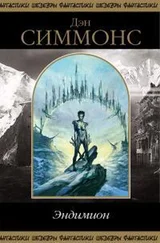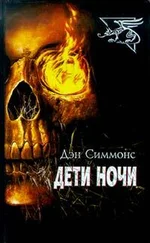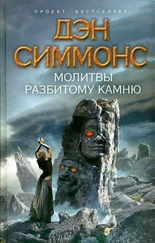Six hunters of the God-Walking People’s band also wanted to come along — mostly out of curiosity and to hunt along the way, since the ice was breaking up very early in the strait this spring — so eventually they set out in several boats since leads were opening along the coastline.
Taliriktug, Silna, and their two children chose to travel — as did four of the hunters — in their long double qayaq , but Asiajuk was too old and had too much dignity to paddle a qayaq anymore. He sat with Nauja in the center of a spacious, open umiak as two of the young hunters paddled for him. No one minded waiting for the umiak when there was no wind for its sails since the thirty-foot-long craft carried enough fresh food in it that they rarely had to stop to hunt or fish unless they wanted to. This way they could also bring their own kamatik sledge in case they needed to travel across land. Inupijuk, the southern hunter, rode in the umiak , as did six Qimmiq — dogs.
Although Asiajuk generously offered to let Silna and her children ride in his nowcrowded umiak , she string-messaged her preference for the qayaq . Taliriktug knew that his wife would never want any child of hers — certainly not Kanneyuk, the two-month-old — to be so close to the vicious dogs in such a tight space. Their two-year-old son, Tuugaq — “Raven” — had no fear of dogs, but he also had no choice in the matter. He rode in the niche in the qayaq between Taliriktug and Silna. The baby, Kanneyuk (whose secret sixam ieua name was Arnaaluk), rode in Silna’s amoutiq , an oversized baby-carrying hood.
The morning they left was cold but clear and as they shoved off from the gravel beach the fifteen remaining members of the God-Walking band chanted their farewell-come-back song:
Ai yei yai ya na
Ye he ye ye yi yan e ya quana
Ai ye yi yai yana .
On their second night, the last before paddling and sailing south through leads from the angilak qikiqtaq , or “biggest island,” that James Ross had named King William Land so long ago, ignoring the fact that the natives who had told him about it had kept calling it qikiqtaq, qikiqtaq, qikiqtak — they camped less than a mile from the site of Rescue Camp.
Taliriktug walked there alone.
He’d been back before. Two summers ago, only weeks after Raven was born, he and Silna had come here. That was only a little less than one year after the man Taliriktug used to be had been betrayed and ambushed and shot down like a dog, but already there was little sign that this had been a major campsite for more than sixty Englishmen. Except for a few tatters of canvas frozen into the gravel, the Holland tents had torn and blown away. All that remained were campfire rings and a few stone tent rings.
And some bones.
He had found some long bones, bits of chewed vertebrae, only one skull — the lower jaw missing. Holding the skull in his hands two summers ago, he had prayed to God that this was not Dr. Goodsir.
These scattered and nanuq -gnawed bones he had gathered up and interred with the skull in a simple stone tomb, setting a fork he’d found among the stones atop the heap of rocks the way the Real People, even the God-Walking People he’d spent the summer with, liked to do, sending helpful tools and beloved-by-the-dead possessions to the spirit world with the dead.
Even as he did this, he’d realized that the Inuit would have thought this an obscene waste of precious metal.
He’d then tried to think of a silent prayer he could say.
The prayers in Inuktitut he’d heard in the past three months were not appropriate. But in his awkward attempt to learn the language — even though he would never be able to utter a syllable of it aloud — he’d played a game that summer trying to translate the Lord’s Prayer into Inuktitut.
That evening, standing by the cairn holding his crewmates’ bones, he’d tried to think the prayer.
Nâlegauvît kailaule. Pijornajat pinatuale nuname sorlo kilangme…
Our father, which art in heaven, hallowed be thy name .
That was as far as he’d been able to get two summers ago, but it felt like enough.
Now, almost two years later, walking back to his wife from a Rescue Camp that was even emptier — the fork was gone and the cairn had been opened and plundered by Real People from the south, even the bones scattered where he could not find them — Taliriktug had to smile at his dawning realization that even if he were granted his biblical threescore and ten years, he was never going to master this language of the Real People.
Every word — even the simple nouns — seemed to have a score of variants, and the subtleties of the syntax were far beyond a middle-aged man who’d gone to sea as a boy and never learned even his Latin. Thank God he would never have to speak this language aloud. Straining to understand the click-clack flow of it gave him the kind of headaches he used to have when Silna first shared her dreams with him.
The Great Bear, for instance. The simple white bear. The God-Walking People and the other Real People he’d encountered in the past two years called it nanuq , which was simple enough, but he also heard variants that might be written down — in English, since the Real People had no written language — as nanoq, nänuvak, nannuraluk, takoaq, pisugtooq , and ayualunaq . And now, from Inupijuk, this hunter from the south (who, he now knew, was not as stupid as Asiajuk insisted), he had learned that the Great Bear was also called Tôrnârssuk by many of the southern bands of the Real People.
For a period of a few painful months — he was still healing then and learning how to eat and swallow all over again — he had been perfectly satisfied to have no name at all. When Asiajuk’s band began calling him Taliriktug — “Strong Arm” — after an incident during a white-bear hunt that first summer when he had single-handedly hauled the carcass of the dead bear out of the water when a team of dogs and three hunters had failed (it had not been his superhuman strength, he knew, just that he’d been the only one to see where they’d snarled their harpoon line on a projection of ice), he hadn’t minded the new name even though he had been happier without one. Asiajuk told him that he now carried the soulmemory of an earlier “Strong Arm” who had died by the hand of the kabloona .
Months earlier, when he and Silence had come to the iglu village so that she could have the help of the women during the birth of Raven, he had not been surprised to learn that the Real People Inuktitut name of his wife was Silna. He could see how she embodied the spirit of both Sila, the goddess of the air, and Sedna, the goddess of the sea. Of her secret sixam ieua spirit-governor name, she would not or could not share it with him through her string-signing or dreams.
He knew his own secret name. On that first night of great misery after the Tuunbaq had taken his tongue and older life away, he had dreamt his secret name. But he would never tell anyone, even Silna, whom he still called Silence in his sent-thoughts during their love-making and in their dreams.
The village was named Taloyoak and consisted of about sixty people and a scattering of more tents than snow-houses. There were even some snow-covered sod homes projecting out from the cliffs that would have grassy roofs come summer.
The people here were called Oleekataliks, which he thought meant “Men with Capes,” although the outer skins they wore on their shoulders looked more to him like Englishmen’s woolen comforters than real capes. The head man was about Taliriktug’s age and was handsome enough, although he had no teeth left, which made him look older than his years. The man was named Ikpakhuak, which Asiajuk told him meant “the Dirty One,” although as far as Taliriktug could see and smell, Ikpakhuak was no dirtier than the rest of them and cleaner than some.
Читать дальше








